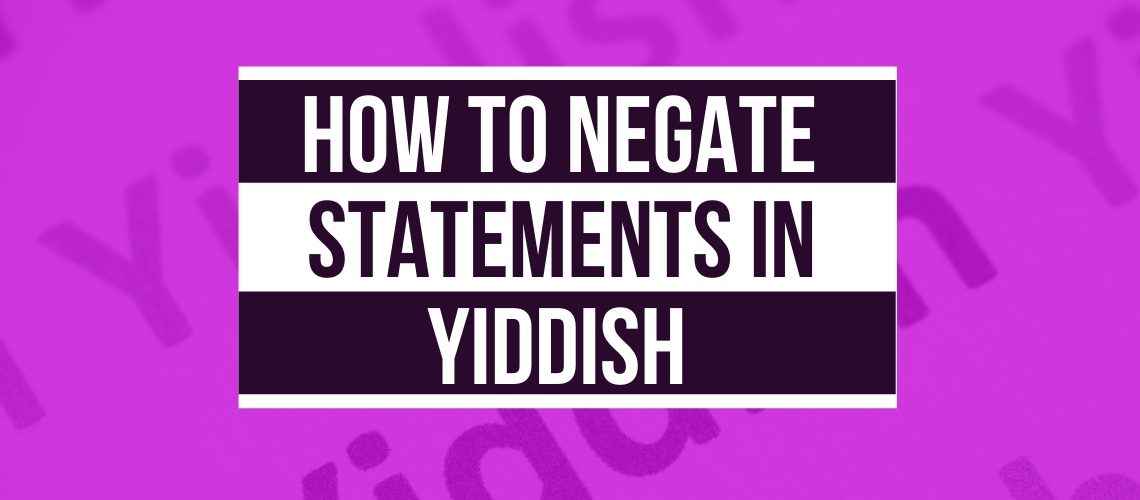So you want to negate a statement in Yiddish? No problem, let’s do it!
Nit or Nisht?
In Yiddish you’ll either hear “nit” or “nisht” when someone negates a statement. The English equivalent is “not” and it simply negates a statement. The negation of a statement simply refers to taking the affirmative (e.g., I am a student) and inserting a marker that indicates the opposite (e.g., I am not a student).
Within Standard Yiddish (YIVO), you’ll hear “nit” being used much more frequently than “nisht” although in spoken Yiddish, primarily Eastern Yiddish, nisht is used more often.
This lesson will use “nit” but you can feel free to use “nisht” at your own dispense!
When Do You Add Nit?
When adding “nit” to negate a sentence, you add the word after the conjugated verb.
For instance: ikh bin der talmid איך בין דער תּלמיד (I am the student) would become ikh bin nit der talmid איך בין ניט דער תּלמיד (I am NOT the student).
It’s important to keep in mind that adding “nit” is used when negating a verb “ikh bin nit git/gut” (I am not good) or a noun with a definite article “ikh bin nit der tate” (I am not the father).
Using Nit Keyn
When negating an indefinite noun, you add “keyn” alongside “nit”
The “keyn” act s as the English word “any” and is used to show the noun is indefinite (simply a noun that is not specific). For example, I am not a mother would mean I am not any mother.
In Yiddish: Ikh bin nit keyn mame איך בין ניט נײן מאַמע
Nit Keyn as a Pronoun
You can also use “nit keyn” as a pronoun to mean “not any” or “no one”
For example: keyner hob dos bukh קײנער האָב דאָס בוך (Nobody has the book)
The pronoun’s inflection takes the masculine gender (for adjectives). e.g., keyner.
Negation for existence
| Positive | Negative |
| Es iz do עס איז דאָ | Es iz nito עס איז ניטאָ |
| There is | There is not |
| Es zaynen do עס זײַנען דאָ | Es zaynen nito עס זײַנען ניטאָ |
| There are | There are not |
Here are a few examples:
- There are no children – עס זײַנען ניטאָ קײן קינדער
- There is no book – עס איז ניטאָ קײן בוך
- There are kids in school – עס זײַנען דאָ קינדער אין שול
Other Resources to Learn Yiddish
- How to Learn and Speak Yiddish
- Best Books to Learn Yiddish
- Happy Birthday in Yiddish
- Yiddish vs. Hebrew
Follow @kojiilanguages on Instagram and YouTube for more content!






